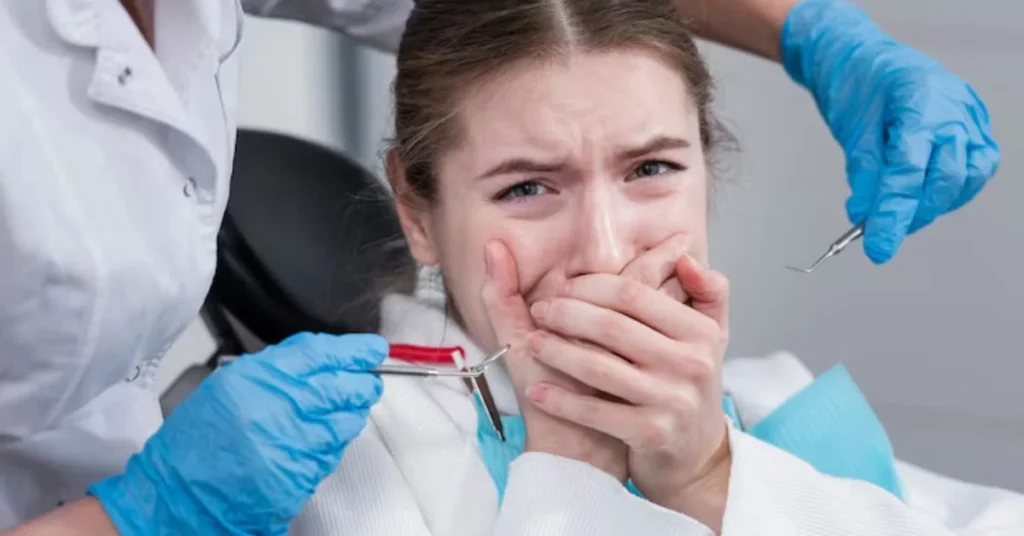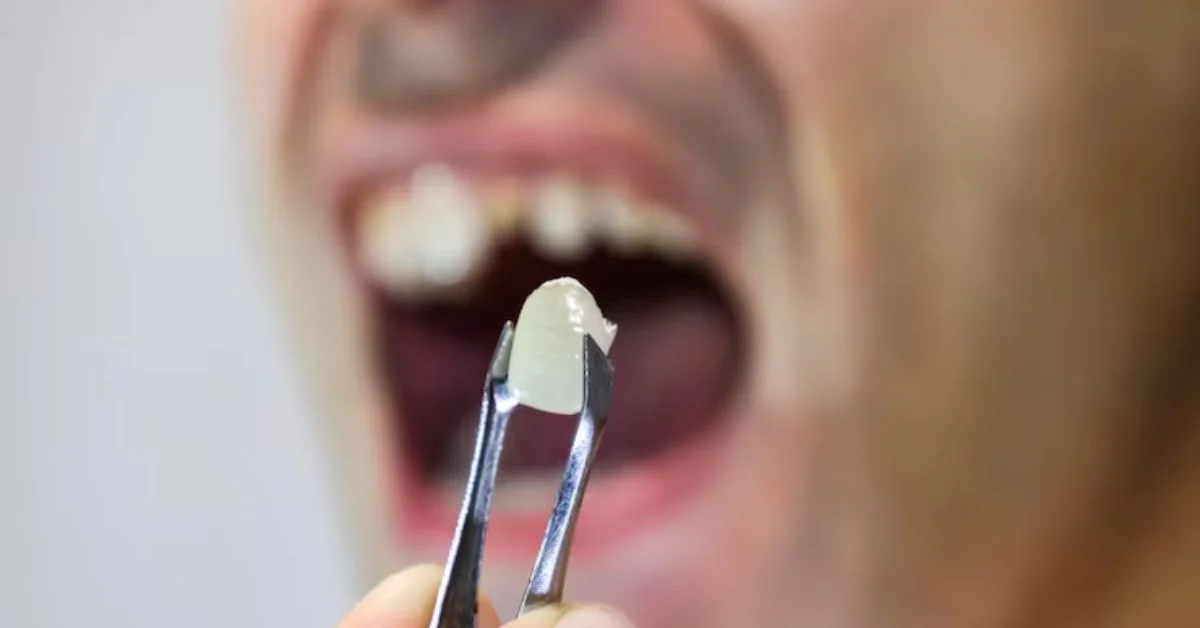Tooth extractions are one of the most routine procedures in modern dentistry. Still, for patients, the experience can be fraught with anxiety—not during the procedure itself, which is usually pain-free thanks to anesthesia, but after, when the numbness fades and the responsibility of healing begins. The first night after a tooth extraction is when questions peak, discomfort surfaces, and the risks—however rare—feel most present.
You can expect mild to moderate pain, some bleeding, facial swelling, and a need for careful attention to post-op care. Managing this first night well is essential to avoid complications like dry socket, infection, or prolonged healing. Proper rest, medication, gauze changes, and dietary precautions all play a role.
In this guide, we walk you through every essential detail—from the first hour after surgery to falling asleep safely—to ensure your recovery starts on the right note.
What Happens Immediately After a Tooth Extraction?
The moment the procedure is done, your dentist or oral surgeon will place gauze over the extraction site to control bleeding. You’ll likely feel numb for another 1 to 3 hours, thanks to the local anesthetic. This window is critical for preparing yourself for the night ahead.
Immediate Priorities:
- Control Bleeding: Bite gently on gauze for 30–60 minutes.
- Limit Talking and Activity: Rest with your head elevated.
- No Eating Until Numbness Wears Off: Avoid accidental cheek or tongue bites.
- Pain Management Begins: Take prescribed or OTC pain relievers as recommended, ideally before the numbness fully wears off.
You’ll be discharged with instructions, possibly including antibiotics, pain meds, and emergency contact information. These aren’t suggestions—they’re your recovery blueprint.
Pain and Swelling: How to Stay Ahead of the Curve
By the evening, the anesthetic will wear off and you’ll start to feel localized pain or a dull ache in the jaw. This is normal, not a sign of complication. The key is managing inflammation and staying ahead of the pain.
What to Do:
- Painkillers: Take ibuprofen (preferred for swelling) or acetaminophen as prescribed. Do not exceed dosage.
- Cold Compress: Apply an ice pack to your cheek for 15 minutes on/off during the first 6–8 hours.
- Limit Movement: Avoid talking, chewing, or bending over.
What to Expect:
- Mild to moderate pain peaking at 6–8 hours post-op
- Mild swelling, sometimes more prominent the following morning
- Difficulty opening the mouth wide, especially after molar extractions
Swelling is part of the body’s healing response. It usually peaks on day two and subsides by day four. Managing it early makes a significant difference in overall recovery.

Bleeding: When Is It Normal and When Is It Not?
Some oozing of blood is expected for up to 24 hours after extraction, especially if the wound is large or if multiple teeth were removed. However, heavy or persistent bleeding could signal an issue.
Managing Bleeding:
- Gauze Pressure: Replace the gauze every 30–45 minutes, biting down gently.
- Avoid Rinsing, Spitting, or Using a Straw: These actions disturb the clot.
- Stay Upright: Reclining too much increases blood pressure in the head and can prolong bleeding.
Red Flags:
- Bleeding that saturates gauze every few minutes for more than 2 hours
- Bright red blood pooling in the mouth (not just staining)
- Fainting or lightheadedness
If any of these occur, contact your provider or visit an emergency clinic. For most patients, bleeding slows dramatically within 4–6 hours and becomes a light pink stain on gauze or tissue.
Eating and Drinking: Nourishment Without Disruption
It’s tempting to eat as soon as hunger returns, but what—and how—you eat on the first night can affect healing and comfort.
Safe Foods:
- Cold or room-temperature soft foods (applesauce, yogurt, pudding, mashed potatoes)
- Protein-rich smoothies (without a straw!)
- Bone broth or lukewarm soup
Avoid: Tooth Extraction
- Hot foods and beverages (they can dissolve clots)
- Crunchy, hard, or sticky foods
- Alcohol and carbonated drinks
Tips: Tooth Extraction
- Chew on the opposite side of the extraction site.
- Do not use straws until after day 3 to avoid dry socket.
- Take small bites and chew slowly.
Even though you may feel limited, it’s important to eat enough to support healing and blood sugar stability. Hydration, too, is vital—sip water frequently.
Oral Hygiene: Protect the Clot, Prevent Infection
The first night is not the time to brush or rinse aggressively. The blood clot that forms in the socket is your body’s natural bandage. Dislodging it leads to a painful condition called dry socket, which exposes bone and nerves and can delay healing by a week or more.
First Night Hygiene:
- Do not brush the extraction site.
- You can brush other teeth gently.
- Avoid mouthwash or hydrogen peroxide rinses.
- If prescribed, use medicated rinse only as directed.
Starting the next morning (typically 24 hours post-op), you can begin gentle warm saltwater rinses, especially after meals, to reduce bacterial load.
Sleep: How to Rest Without Risk
Falling asleep after a tooth extraction is often harder than expected. There’s discomfort, the worry about bleeding, and general unease. But rest is critical—your body heals fastest during sleep.
Best Practices:
- Sleep with Head Elevated: Use an extra pillow to reduce swelling and bleeding.
- Avoid Sleeping on the Extraction Side: Pressure can interfere with clotting.
- Set Medication Reminders: If pain relief is time-sensitive, use a phone alarm.
- Don’t Sleep with Gauze in Mouth: Always remove gauze before sleep to prevent choking.
If anxiety about bleeding persists, place a towel on your pillowcase. Most patients find they can sleep reasonably well by taking pain relievers 30–60 minutes before bed.
What You Might Feel That First Night
- A dull ache that grows sharper if untreated
- A strange taste (from blood or clotting agents)
- Tingling or numbness around the jaw
- Anxiety about “doing something wrong”
These are all common and not necessarily signs of trouble. Trust your body, stay hydrated, and rest. Most complications don’t emerge until day 2–3, so the first night is all about setting a strong foundation.
Long-Term Healing Begins Tonight
While the first 12–24 hours feel like a standalone experience, everything you do now affects your total healing timeline. A clot forms, stabilizes, and becomes granulation tissue. The socket will close over weeks, and bone will slowly fill the void.
Patients who rest properly, avoid mouth trauma, and eat cautiously during this early window often experience faster, smoother recoveries. Think of the first night as phase one of a quiet, powerful biological process.
Conclusion: The First Night Is a Test of Patience and Care
Tooth extractions are quick; recovery is an art. The first night after tooth extraction is when healing either begins or is set back by preventable choices. From bleeding and pain to rest and nutrition, every decision matters. And while the body is equipped to handle injury, it counts on us to support the process with awareness and restraint.
There’s no glory in toughing it out or rushing back to routines. Listen to your body, follow your provider’s instructions, and remember: the quieter the first night, the stronger the recovery.
FAQs: Tooth Extraction
1. How long does pain last after a tooth extraction?
Pain typically peaks within the first 6–8 hours post-extraction and improves within 2–3 days. Most patients feel significantly better by day four, though minor discomfort may linger for a week.
2. Is it normal to bleed the first night after extraction?
Yes, light oozing or slight bleeding is normal for up to 24 hours. Continuous, heavy bleeding should be reported to your dentist immediately.
3. Can I brush my teeth the night of an extraction?
You can brush all areas except the extraction site. Avoid rinsing vigorously or using mouthwash the first night to protect the clot.
4. What should I eat the night after a tooth extraction?
Stick to soft, cold or room-temperature foods like yogurt, smoothies (no straw), mashed potatoes, and applesauce. Avoid hot, spicy, or crunchy foods.
5. How should I sleep after a tooth extraction?
Sleep with your head elevated using extra pillows. Avoid lying on the side of the extraction and do not sleep with gauze in your mouth.
For more information, click here.









